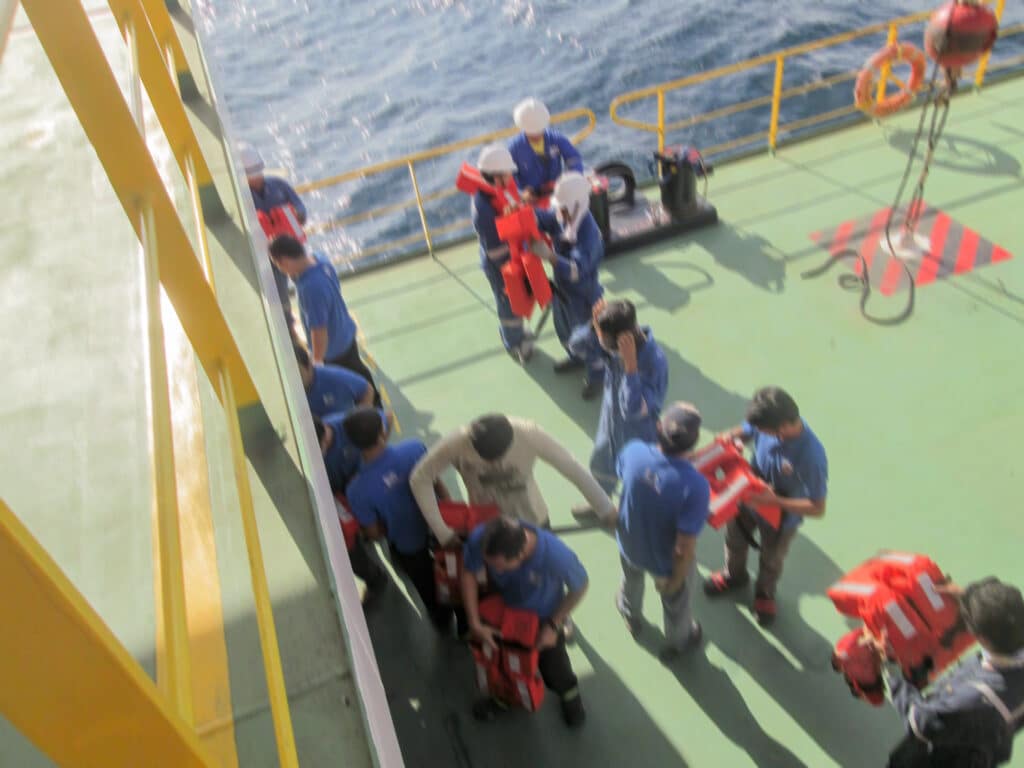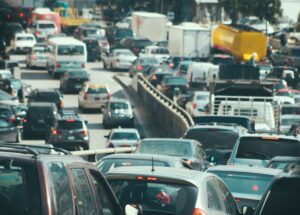Like plane crashes, serious oil rig accidents and evacuations make the headlines because they have far-reaching consequences and do not happen often. Incidents, such as fire outbreaks, explosions, exposure to harmful substances, and even natural disasters like hurricanes and storms, may create the need to evacuate oil rig workers.
How Common Are Oil Rig Accidents?
The Bureau of Safety and Environmental Enforcement (BSEE) collects data on offshore accidents and injuries. According to the BSEE, from 2012 to 2020, there were 4,474 offshore incidents, resulting in 1,654 injuries and 23 deaths.
Here are other offshore incident statistics:
- 2020 was a dangerous year in the offshore industry. There were 687 incidents, causing six deaths and 222 injuries.
- Over 93% of offshore incidents happened in the Gulf of Mexico. Less than 7% are in the Pacific region, and there are about four incidents in the Alaska region.
- The most common type of incident involved a crane, 27% of all incidents. The second closest is fire incidents at 17%.
What Was the Deadliest Oil Rig Accident?
There have been several devastating oil rig accidents, including:
Piper Alpha Explosion (July 1988)
The Piper Alpha explosion in the North Sea is by far the worst oil rig disaster ever. A communication error between shift workers caused a gas leakage, leading to multiple explosions on the platform. The tragic event, which happened in July 1988, caused a fire that took about three weeks to control and led to the death of 167 people out of 226 workers.
Alexander L. Kielland (March 1980)
On March 27, 1980, 212 workers were aboard the Alexander L. Kielland, a semi-submersible platform, in the North Sea. High winds during a storm caused one of the five vertical columns supporting the platform to break off. This led to the tilting and eventual capsizing of the platform. Investigation revealed an existing crack on one of the leg bracings that caused it to fail. The accident killed 123 workers.
Deepwater Horizon (April 2010)
The Deepwater Horizon explosion caused the biggest oil spill in U.S. history — spilling 4 million barrels of oil into the Gulf of Mexico. The oil spill lasted nearly three months. Although the death toll from this explosion was less than in more catastrophic oil rig accidents, it was still deadly, injuring many of the 126 workers that were onboard and killing 11 persons.
What Are the Common Causes of Oil Rig Accidents?
From fires to explosions, there are several causes of offshore accidents, including:
Equipment Malfunction
Equipment failure can be disastrous in the oil and gas industry. Unfortunately, sometimes someone notices a fault in the equipment requiring repair. Still, companies postpone repairing the faulty equipment to maximize profit or avoid delay until it’s too late. Equipment failure can lead to blowouts, explosions, or platform collapse.
Fires
The dangerous, highly flammable substances in offshore operations increase the possibility of fire outbreaks, which can easily trigger explosions. The spark that causes the fires can start in the kitchen, from welding, or from exposing oil to dangerous substances.
Extreme Weather
Extreme weather conditions can be dangerous offshore. The Alexander L. Kielland incident was caused by a storm that weakened one of the leg bracings.
Blowouts
Blowouts are a common cause of explosions in oil rigs. They usually happen when pressure control systems that regulate the release of gas or oil malfunction. The Deepwater Horizon explosion was a blowout caused by a failed blowout preventer.
Dangerous Chemicals
Workers in an oil field are at risk of inhaling or being exposed to toxic chemicals in offshore activity. Inappropriate exposure to these dangerous substances can lead to minor or severe injuries and even death in extreme cases.
How is fault determined in an Offshore Accident or Death?
It is always the burden of the party bringing the complaint to prove liability on the preponderance of evidence. It can be challenging in the offshore oil and gas industry because many parties, companies, and processes must work together. Typically, the federal government will investigate every significant accident in the United States to determine the cause to increase safety and prevent future tragedies. These investigations also have the benefit of sometimes proving liability and culpability. To be successful, a claim must prove two components: that the company was negligent and responsible for the accident or incident that caused the injury or death.
Proving negligence requires you to show the following:
- Duty of care. This involves showing that the company owes you a duty of care. The expectation for a safe work environment extends from a company’s duty of care.
- Breach of Duty. It must be proven or demonstrated that the company failed in its responsibility to provide a safe work environment by acting negligently or recklessly. For example, cases in the past have demonstrated that companies failed to maintain equipment, didn’t train employees properly, or ignored safety regulations.
- Causation. The company’s breach of duty must cause the injury or death in question. In other words, the harm cannot be the result of another action. For example, a company would not be liable if an employee died of a drug overdose and it just so happened that an accident occurred. The breach of duty must lead to the injury.
- Damages. Actual harm or loss must have occurred which may include lost wages, pain and suffering, loss of companionship, or medical bills.
Who Is Responsible for Offshore Accidents?
Anyone injured in an offshore accident knows it is not always clear who is responsible for the accident and any resulting injuries, as several key players in the offshore industry could have caused the incident. They include:
Employers
Offshore employers must ensure the safety of their workers. This includes providing the right equipment, safety training, and a safe working environment. Notwithstanding the inherent risks in offshore environments, an employer is responsible for ensuring safe operation.
Platform Owners and Operators
The owners and operators of offshore platforms are often different, but they both have a responsibility to ensure the safety of offshore workers. Failures in maintenance, equipment checks, or safety regulations from either party can lead to serious accidents that can cause personal injury, loss of life, and environmental damage.
Manufacturers
Manufacturers are liable if offshore accidents occur because of manufacturing defects, design flaws, or inadequate safety features in their equipment. Examples include faulty equipment, inherently dangerous designs, or improper safety features.
Third-Parties
Third-party companies, such as dredging, tugboats, and transport services, impact offshore workers’ safety. If a third party contributed to the accident, they would also be responsible.
SOURCES:
Statista: Number of casualties in the most fatal offshore oil rig disasters worldwide from 1964 to 2010
Safety4Sea: Alexander L. Kielland: Norway’s worst offshore disaster









